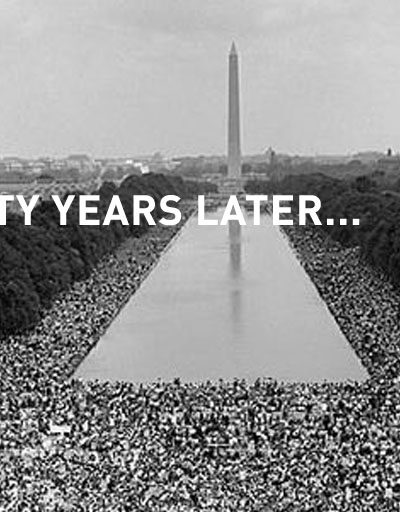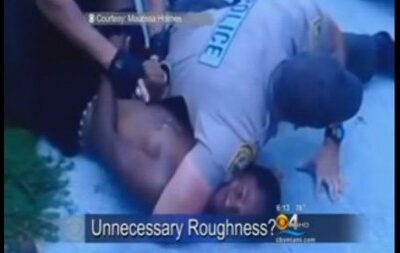News & Commentary
Police Hide Use of Cell Phone Tracker From Courts Because Manufacturer Asked
Note: This blog post originally appeared on the National ACLU Blog of Rights. That post can be found here.
By Nathan Freed Wessler, Staff Attorney, ACLU Speech, Privacy & Technology Project
It appears that at least one police department in Florida has failed to tell judges about its use of a cell phone tracking device because the department got the device on loan and promised the manufacturer to keep it all under wraps. But when police use invasive surveillance equipment to surreptitiously sweep up information about the locations and communications of large numbers of people, court oversight and public debate are essential. The devices, likely made by the Florida-based Harris Corporation, are called “stingrays,” and unfortunately this is not the first time the government has tried to hide their use.
By Guest Blog- ACLU National

SAFE Act Anything But
By Eduardo Gonzalez, former director of the U.S. Marshals Service.
I have worked as a law enforcement professional for 34 years, rising through the ranks from patrolman to deputy director in the Miami-Dade Police Department during a 27-year career. Later, it was my privilege to return to my hometown of Tampa when I was selected to serve as its police chief. Finally, I was given the opportunity to serve at the national level as director of the U.S. Marshals Service for the past five-and-a-half years of my career.
There isn’t anyone I’ve worked with in law enforcement who would disagree that the single most important asset local police have in protecting public safety is the trust and cooperation of the community they are sworn to protect.
By admin

The March on Washington: Dream of a Better America
ACLU of Florida’s Field Coordinator Nikki Fisher is attending the 50th Anniversary March on Washington. She will be blogging her experiences for ACLUFL.org
This past weekend, I traveled to Washington DC to commemorate the 50th Anniversary on the March on Washington. Friends and colleagues have been asking me how I would describe the trip. The best explanation: I have been on cloud nine since Saturday. The energy, inspiration, and enthusiasm of the crowd were indescribable. The diversity of messages, of people, of generations, and sex, race, religion and everything else all involved in thefight for justice in the United States was inspiring. Seeing the continued struggle of all Americans coming together on Washington is something I will never forget.
By Nikki Fisher

The March on Washington and History Repeating Itself
ACLU of Florida's Field Coordinator Nikki Fisher is attending the 50th Anniversary March on Washington. She will be blogging her experiences for ACLUFL.org
The original March on Washington took place over two decades before I was born. When I was a kid in school first hearing about it, it seemed as far away from me as did stories about the Civil War or the founding fathers or anything else I read about in a history books. But as I grew older and learned more about the march, more about what the people involved were fighting for, and more about the world, it became less of a mythic part of some distant history and more relevant to me.
By Nikki Fisher

14-Year-Old Arrested for Playing with Puppy While Black. Seriously.
Note: This blog post originally appeared on the National ACLU Blog of Rights. That post can be found here.
By Rebecca McCray, ACLU Criminal Law Reform Project
Last week down in Florida, 14-year-old Tremaine McMillian was playing in the water with a friend at the beach when a Miami-Dade police officer approached him to ask what he was doing, misinterpreting their play for a fight. Tremaine walked away from the officers, carrying his new puppy in his arms. After observing his allegedly "dehumanizing stares" and clenched fists, the officer used his ATV to chase Tremaine down and throw him to the ground in a chokehold so intense that the teenager wet himself during the incident. It was his mother who caught part of the incident on camera.
By Guest Blog- ACLU National

An Unexpected Reaction: Why a Science Experiment Gone Bad Doesn't Make Me a Criminal
By Kiera Wilmot
After model student Kiera Wilmot (pictured, left, with her twin sister Kayla) was arrested and removed from her high school for doing a science experiment on school property, hundreds of thousands of people across the country signed petitions asking for charges to be dropped and for her to be reinstated in school. Kiera's school's zero-tolerance approach, like so many schools across the country requires severe discipline and does not improve student behavior or improve our schools. It just pushes kids out of school, harming their futures and perpetuating the school-to-prison pipeline. Below, Kiera blogs for ACLU.org about how she and her family have been affected by the school-to-prison pipeline.
By admin

Stay Informed
Sign up to be the first to hear about how to take action.
By completing this form, I agree to receive occasional emails per the terms of the ACLU’s privacy statement.
By completing this form, I agree to receive occasional emails per the terms of the ACLU’s privacy statement.
